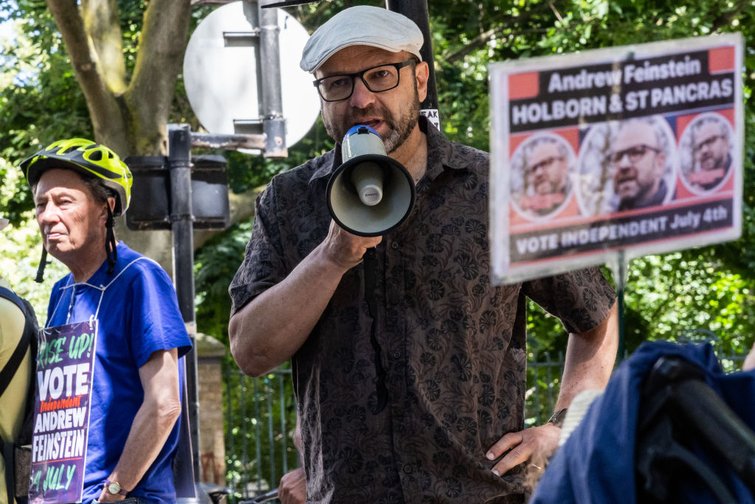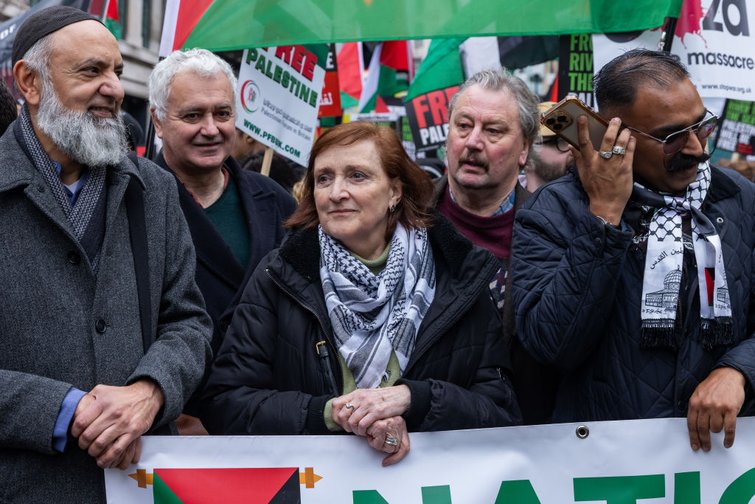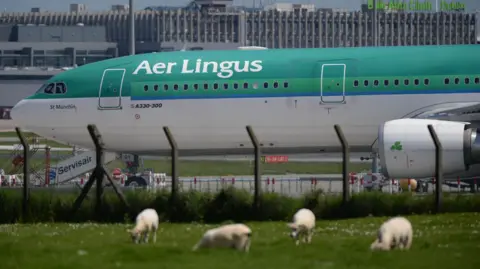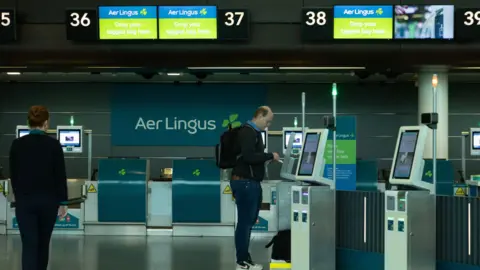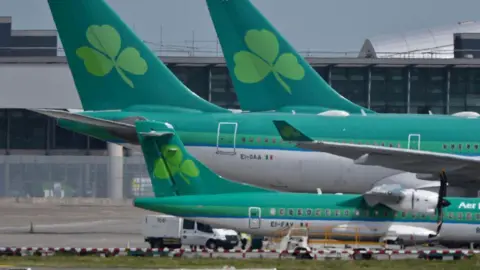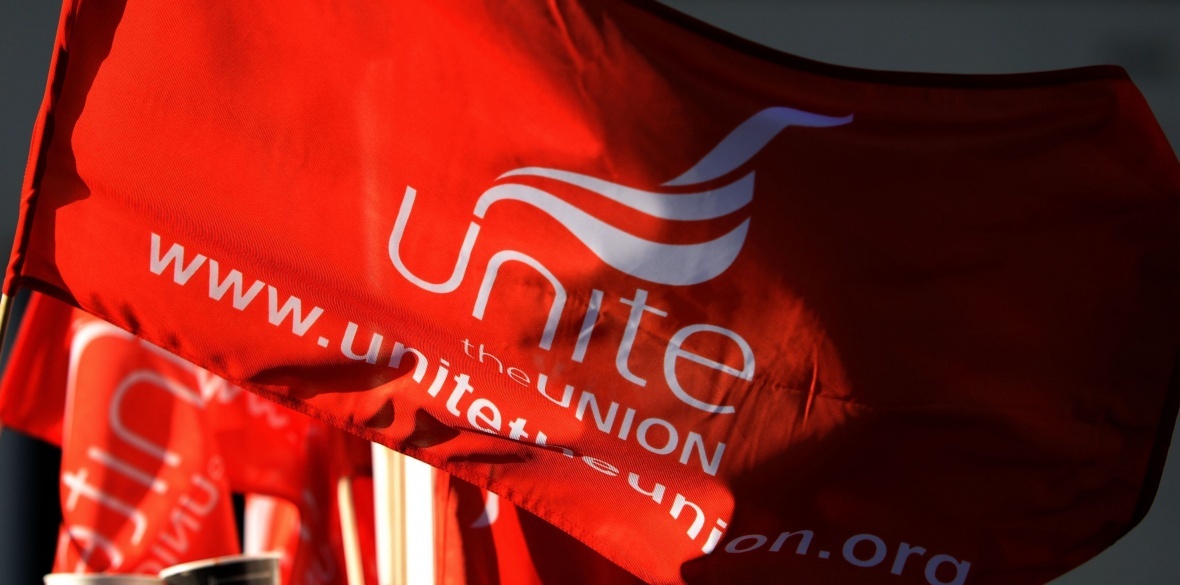History shows the need for strikes, protests and campaigns to redouble under Starmer's Labour

By Charlie Kimber
Tuesday 02 July 2024
What happens after Keir Starmer closes the door of 10 Downing Street on the cheering crowd assembled to celebrate his success?
As the street sweepers tackle the mound of “Change” placards and fizzy wine bottles, Starmer will seek to implement his carefully—prepared programme to boost British bosses.
There will be three positions in response. The large majority of Labour MPs and many trade union leaders will say that Starmer has to repair the wreckage left by the Tories.
They’ll claim he needs time and understanding to do this. He should, they will say, be defended from criticism and praised to the skies for any small improvements he delivers.
Calls for big wage rises, a shift in policy over Palestine or major funding for the NHS are traitorous because they will destabilise “our” government.
Another small group of Labour MPs and some union leaders will say that there has to be specific and limited agitation around particular issues.
Labour must be pushed to deliver, for example, on its pledge to repeal some anti-union laws and recruit more teachers.
Then there will be those, including Socialist Worker, that say we need to recognise Starmer’s government is an enemy of the working class.
A government that will seek to squeeze workers to bail out a capitalist system in turmoil.
It is not an errant friend, it is not a potential ally, it needs to be fought over specifics and in general.
People can fight back in many ways—over racism, environmental degradation, trans+ liberation and lots of other issues.
But there will be a particularly sharp debate inside the trade unions because of their leaders’ links to Labour.
It’s not inevitable that workers’ struggle dies down now. That’s a question of politics and leadership rather than something decided in advance.
Struggle might be held back or burst out in an explosion of justified demands as the Tory boot lifts.
Between 1964 and 1970, with Labour’s Harold Wilson as prime minister, the number of strikes and strike days rose every year. In 1964 there were 2,277,000 strike days.
By 1969 that was 6,846,000— and headed upwards. Workers did not accept they should knuckle under Labour’s demands for “sacrifice” as economic slowdown accelerated.
They ignored union leaders who tried to enforce “loyalty” to Wilson. And they broke Labour’s 1969 attempt to impose anti‑union laws.
The militancy of the late 1960s was the run-up to the explosion of struggle in the 1970s under the Ted Heath Tory government.
It was a different story under the Wilson and the James Callaghan Labour governments from 1974 to 1979.
Labour won the election on the back of a miners’ strike that destroyed the Conservative government. It was determined to revive profits and that meant breaking strikes.
Ministers unveiled the “social contract”—a deal with union leaders to keep wage increases low.
In an early sign of what was to come, the government sent in troops to break a strike by Glasgow refuse drivers and other workers in March 1975.
A leaflet distributed at the time by the Glasgow International Socialists, forerunners of the Socialist Workers Party, pointed out that Glasgow council bosses were “determined to defend the Labour government’s social contract.
“It is no use waiting for senior trade union officials to give a lead, they too are party to the social contract. Rank and file trade unionists must strike when the troops move in.”
Labour could not control the bosses, the International Monetary Fund or even its own Treasury officials.
But the “Social Contrick”—as workers soon called it—gave it dominance over the union leaders.
It took real effort to subdue workers’ resistance. The week after soldiers smashed the Glasgow strike, Socialist Worker’s front page reported on eight factory occupations over pay and jobs.
At Ford in Swansea, 1,000 workers sat-in at the plant for two days to save one job—and won. In July 1975 the government imposed a fixed flat-rate wage increase of £6 a week.
The £6 amounted to about 10 percent of average wages at the time— while the rate of inflation was 24.2 per cent.
The TUC union federation leaders accepted this massive cut. And Labour chancellor Denis Healey celebrated.
He told parliament, “The most impressive thing has been the speed with which members of the TUC have themselves reached a voluntary agreement on a limit to pay which will mean some reduction in real take home pay for the majority, though by no means all of its members.”
Inflation was still at 16.5 percent in 1976, but trade union leaders agreed to a limit of 4.5 percent—another huge cut in real terms.
In 1976, the seafarers’ union threatened pay strikes. The TUC general secretary Len Murray told them, “By god, we’ll make sure no union supports you. We’ll cripple you.”
The firefighters began an eight-week strike for a 30 percent pay claim in November 1977.
Labour mobilised all its forces against them—including the use of troops. Despite wide public support, Labour defeated the strike.
Union leaders serving a Labour government deliberately and systematically crushed the fantastic feeling of unity and militancy built up in the 1960s and early 1970s.
Persuaded that this was “their government” they made scabbing respectable for sections of workers.
When shipyard workers at Swan Hunter in north east England refused harsh new conditions linked to a large Polish ship order, the Govan yard scabbed on them.
Jimmy Airlie, Govan’s Communist convenor, had led the famous Upper Clyde Shipbuilders occupation to save jobs in 1971. He asked at that time, “Are the other shipyards going to accept our orders and let my men starve?”
But in 1978, serving Labour’s strike-breaking, he disgustingly said, “If Newcastle are losing six ships through disputes, we will build them. If not us, then the Japs will.”
Eventually the union leaders couldn’t hold back the revolt over pay. Mass strikes in 1978 broke out in what became known as the “Winter of Discontent”.
The alienation from Labour because of its betrayals helped Margaret Thatcher win the 1979 election. Tony Blair became prime minister in very different circumstances to the 1970s.
The level of strikes was low. And it took a long time before there was any sort of revival.
Blair’s government attacked workers and unions, moaning in private that the minimum wage was set too high.
Blair hated even the most loyal union leaders, complaining they had left “scars on my back”.
Privately, after meeting the Unison union leaders, Blair said “they can just fuck off” and that transport union officials were “stupid and malevolent”.
It was five years—and another Blair victory—before there was a small rise in strikes.
These strikes, combined with the beginning of the millions‑strong movement against the Iraq war, produced a political crisis for New Labour.
The anti-war movement then produced electoral challenges to Labour and deep bitterness among large sections of the working class.
It won’t be five years before the fight starts under Starmer. He comes to office with the economy in a much weaker state than in 1997 and with the British and international system in turmoil.
Blair could combine his pro-boss and pro‑imperialist policies with some small reforms that kept union leaders and Labour MPs mostly quiet.
Between 1997 and 2007 NHS funding grew by nearly 6 percent a year. Much of the cash was drained off by private firms but Starmer offers nothing even approaching what happened under Blair.
One lesson from the history of previous Labour governments is that we have to fight now for every possibility of strikes— national if possible but local if necessary.
And resistance doesn’t just take the form of trade union action. We need to combine action on all fronts against all forms of exploitation and oppression.
We need resistance against imperialism and war as well as over pay and public sector funding.
And anti-racism will be central because of the way racists have always tried to gain from the disillusion of Labour supporters as the reality of a Labour government becomes clear.
This is what we mean by fighting Starmer from day one—and it will also mean confronting union leaders who are obstacles to the fightback.


